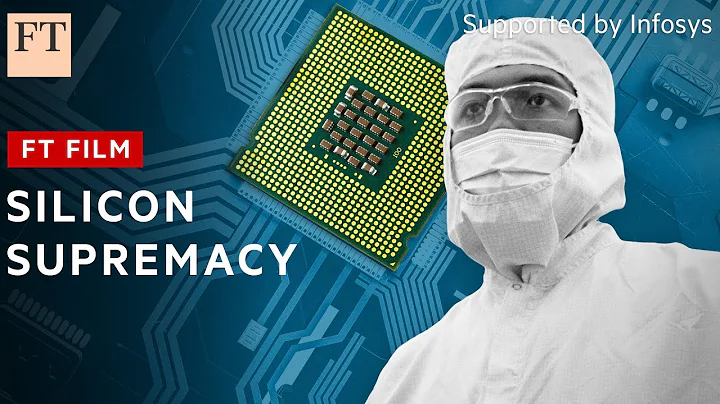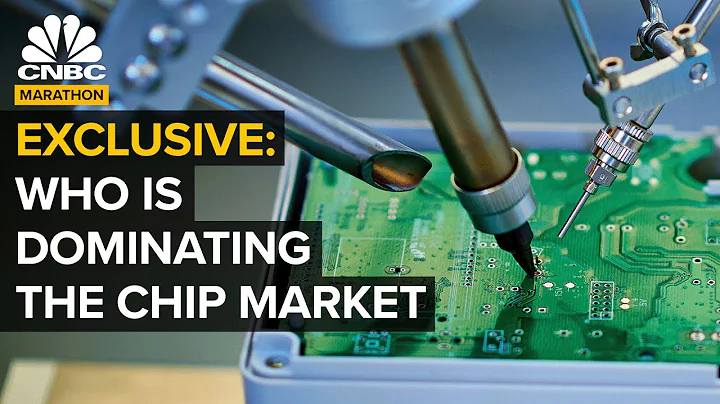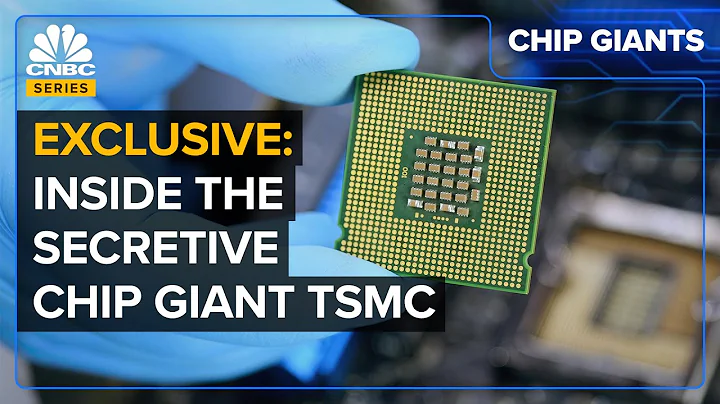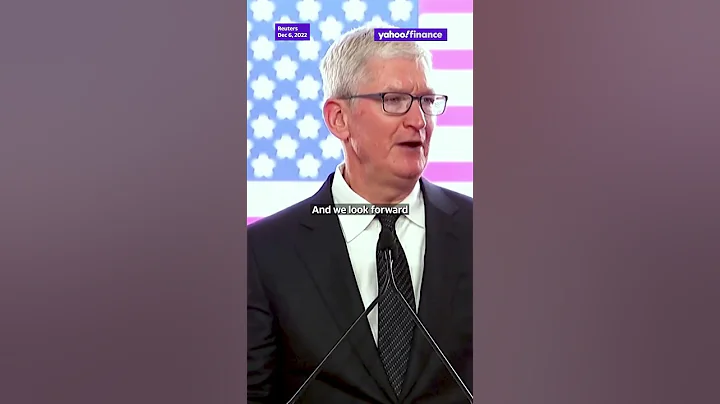Source: China Jingwei.com

Taiwan Semiconductor is facing the most severe talent shortage in history. Even major manufacturers that are partners with TSMC are also competing for people, making this dream company's halo fade. When top-notch talents are gradually being sucked away by major international companies, people can’t help but worry about the future of Taiwan’s industry!
Over the past 40 years, Taiwan has built a complete semiconductor industry chain and trained a number of cost-effective (CP value) talents. Unexpectedly, 2022 will usher in the most severe talent shortage. Even TSMC (referred to as TSMC ) is no longer the "dream company" for top students.
Professor Chen Boqi, convener of the Optoelectronic Semiconductor Working Circle of the Talent Education Platform of the Taiwan Education Department, analyzed that starting from 2020, Sino-US trade friction, the new crown epidemic, a large number of Taiwanese factories reshoring, wafer shortage, coupled with a declining birthrate, a sharp decline in science and engineering students, etc. Multiple arrows were fired together, forming a "perfect storm" of semiconductor talent shortage.
Apple , Chaowei, Qualcomm , Huida, and Intel are all here
In 2020, the number of births in Taiwan was lower than the number of deaths for the first time. For two consecutive years, "life is worse than death". The number of students has decreased, and students applying for science and engineering are even more. It's getting worse. From the 2013 school year to the 2021 school year, the number of high school vocational electronics students has declined by 39.4%. During the same period, the number of vocational students applying for semiconductor-related science and technology departments (systematic test) dropped by 12,413. "The shrinking entrance of science and engineering students has led to a serious imbalance in the supply and demand of semiconductor talents," Chen Boqi said.
Unexpectedly, major international manufacturers stepped in again, making the storm even more intense. After the trade friction between China and the United States, Taiwan's strategic position has become extremely important, and foreign businessmen have increased their investment due to their optimism.
TSMC's major customers, such as Apple, AMD, Qualcomm, Huida, and Intel are here. In May 2020, Apple spent tens of billions (New Taiwan dollars, the same below) to build a new MicroLED (micro-light emitting diode) factory in Longtan; Intel has more than 1,000 employees in Taiwan, making it the second largest base in Asia. At the end of last year, it took the lead in promoting When recruiting women, employees will receive 80,000 yuan for recommending male recruits, and up to 160,000 yuan for women. This year, 200 people will still be recruited.
"Not only semiconductor and IC design, but also major equipment and raw material manufacturers are here. These foreign companies are poaching experienced engineers, directly squeezing the Taiwanese factory's employment," said Zhou Keheng, director of Xinquan Technology's Human Resources Service Department.
The largest semiconductor equipment manufacturer Asmore also followed the footsteps of TSMC. In August 2020, it set up an EUV lithography machine training center in Nanke. It hired 1,000 employees last year and had two salary increases of nearly 10%; it will recruit more this year 1,000 people, and plans to build Taiwan into a global supply chain management center. The number of employees in Taiwan will increase to 4,200 by the end of the year, surpassing the total number of employees in mainland China and South Korea.
major material manufacturers also reported one by one. Entegris, a giant in semiconductor materials in the United States, will invest approximately NT$14.3 billion within three to five years; Germany's Merck & Co. (MERCK) plans to invest NT$17 billion...
This year, TSMC expects to recruit 8,000 people and MediaTek 2,000 people. With the entry of major international manufacturers, scarce talents will become even more scarce. The
104 Job Bank survey shows that in the fourth quarter of 2021, there were 34,786 job opportunities in the semiconductor industry, 77% more than the fourth quarter of 2019. During the same period, foreign job opportunities doubled from 1,804 to 4,269. "We have never seen the semiconductor industry be so hungry for talent, with a huge number of job openings every month." said Jin Liming, senior deputy general manager of 104.
Even the most basic layout engineer in IC design is hard to find. A senior engineer said that TSMC's manufacturing process is the most advanced, and layout engineers have to keep up. In the past two years, due to geopolitical relations, all countries (or regions) want to develop semiconductors, but they have no IC design and layout engineers with advanced process experience. However, the high cost performance of Taiwanese talents has amazed foreign businessmen, not only the United States, France, Japan, South Korea, , and Switzerland lost their orders to Taiwan. Major manufacturers simply came to Taiwan to set up offices and directly competed to hire local engineers.
As a result, MediaTek and TSMC have to work together to increase the annual salary of masters to 2 million. An engineer said that after a significant increase in wages, Taiwanese factories are now on par with foreign companies, but foreign job openings are still attractive, with relative freedom and fewer overtime hours than Taiwanese factories. This wave of semiconductor talent shortage is no longer a "local" war, but a "local and foreign" war.
Young people's work outlook has changed. They would rather be free than work shifts.
What's even more troublesome is that young people's work outlook and life attitudes have changed.
Zhang Bolun, Director of the Admissions Office of Longhua University of Science and Technology, admitted that in the baking experience classes for junior and senior high schools, even the boys’ eyes lit up when making cakes. He told parents that he would study catering in college, and the beauty and hairdressing experience classes were also very popular. I only have little interest in experiencing science and engineering subjects such as electronics and electrical machinery.
Zhang Bolun further said that most students are afraid of physics, mathematics, and chemistry and do not want to study science and engineering. Many parents only have one or two children and are afraid that their children will suffer. Even if the salary is high, they are also worried about the impact of shifts on their health. They prefer jobs like "sitting in an office and blowing the air conditioner".
For young people, nothing is more valuable than "freedom". Longhua University of Science and Technology R&D Director Chen Yongyu’s friend’s nephew worked as a delivery boy after graduating from college. “Be careful every month. 90,000 is not a problem. The main thing is freedom. You can deliver when you want and rest when you want.”
Public University of Science and Technology We also encountered bottlenecks. Shi Tiancong, dean of the School of Electrical Engineering of the University of Science and Technology of China, said that the monthly salary for intern students at the University of Science and Technology is more than 28,000 to 30,000 yuan, and companies also increase retention bonuses. The students still don’t want to go, so they directly responded, “Teacher, I go to work in a supermarket. More freedom, and more than 20,000 per month. "
Shi Tiancong called on the Taiwanese government, industry, schools, and society to jointly create a career plan that allows young people to "see hope" in order to attract students into the semiconductor industry and overcome talent. shortage problem.
Most scholars believe that one of the fastest and most effective ways is to introduce a large number of foreign students. Chen Boqi suggested that if foreign students can stay in Taiwan, they can promote consumption and enhance industrial competitiveness. "They are not stealing our jobs, but creating a win-win situation," he often teaches students.
Next is to encourage girls to study science and engineering. For a long time, Taiwan's atmosphere and stereotypes of and , as well as the unfriendly university admissions system, have resulted in a low rate of female students studying in science and engineering.
Zhang Yaowen, dean of the School of Electrical and Electronic Engineering at National Taiwan University, believes that positions are not gender-specific and mainly depend on personal interests. There are many outstanding female scientists in the world. Girls studying science and engineering are also an effective way to increase semiconductor talents.
A pure war for talent may escalate into a security issue in Taiwan
According to the observation of a professor from the Institute of Electronics at National Taiwan University, under the impact of multiple factors recently, TSMC has no longer been the first choice for master's and doctoral students at National Taiwan University. Taking the electronic design automation (EDA) graduates of National Taiwan University as an example , the top two dream companies are Synopsis and Yihua Computer, followed by MediaTek, and TSMC has dropped to fourth.
Semiconductors gain glory and even attract foreign companies to set up locations. On the bright side, it means that the talents are excellent. But if you take a step back and think about it, when all the engineers are taken away and even TSMC’s halo gradually fades, what will be left in Taiwan? This is no longer a simple war for talent, but a security issue that is shaking up the largest industry. (Author: Peng Xingzhu This article is excerpted from "Vision Magazine April Issue 430")





















